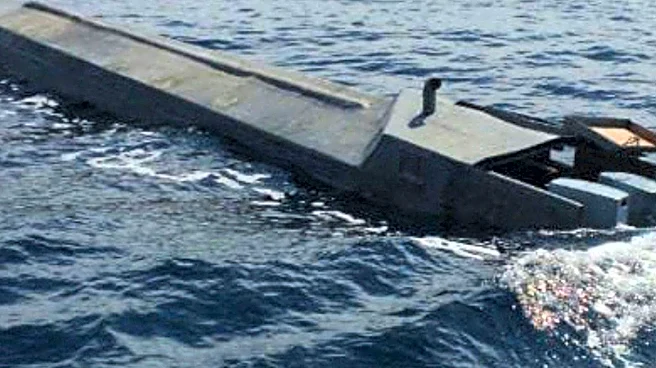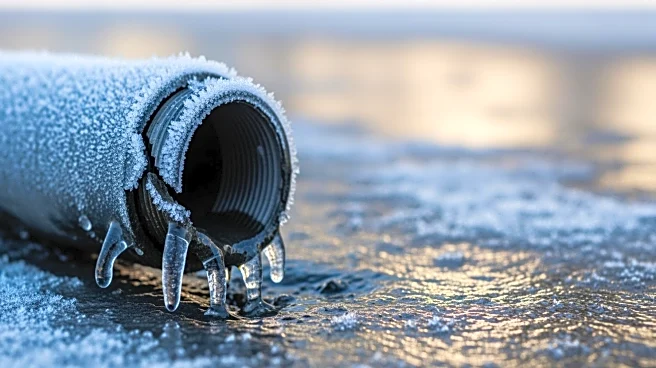What is the story about?
What's Happening?
Samuel McLennan, a 48-year-old innovator, has successfully crossed the Bass Strait in a vessel constructed entirely from marine debris. The boat, named Heart, was assembled over two years using materials such as commercial fishing rope, oyster bags, agricultural plastics, and oyster farm buoys. Initially, maritime authorities restricted the vessel to coastal waters, deeming McLennan's ocean-going plans as 'foolhardy.' However, McLennan proved skeptics wrong by navigating hundreds of nautical miles. The journey from San Remo to French Island took five hours, powered by a four-stroke outboard motor. The vessel's construction highlights the potential for repurposing waste materials, addressing the issue of the 14 million tonnes of plastic entering oceans annually.
Why It's Important?
This project underscores the growing need for innovative solutions to tackle marine pollution. By transforming waste into a functional vessel, McLennan's initiative demonstrates the potential for creative recycling and upcycling in addressing environmental challenges. The project also raises awareness about the impact of industrial waste on marine ecosystems and encourages industries to adopt more responsible waste management practices. The success of Heart could inspire similar initiatives, promoting sustainability and environmental stewardship. This development is significant for environmental advocates, policymakers, and industries seeking to reduce their ecological footprint.
What's Next?
Following the successful crossing, McLennan's project may inspire further exploration into the use of marine debris for practical applications. Environmental groups and policymakers might consider supporting similar initiatives to promote sustainable practices. Additionally, industries responsible for marine waste could face increased pressure to implement more effective waste management strategies. The project could also lead to collaborations between innovators and environmental organizations to develop scalable solutions for marine pollution.
Beyond the Headlines
The vessel Heart serves as a 'structure for conversations' about waste, creativity, and change, according to McLennan. It highlights the ethical responsibility of industries to manage waste sustainably and the potential for individuals to drive change through innovative thinking. The project also emphasizes the importance of community engagement in environmental initiatives, as seen in the support and interest from French Island residents. This initiative could lead to a cultural shift towards valuing creativity and resourcefulness in addressing environmental issues.
















